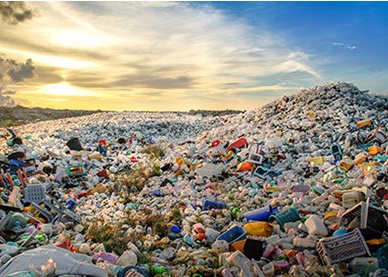A war on plastic is needed – You have surely heard recent stories about plastic trash in the oceans. Yearly, we dump eight to ten million tons of plastic into the ocean – War plastic trash ocean - Arhive
A war on plastic is needed
 You have surely heard recent stories about plastic trash in the oceans. Yearly, we dump eight to ten million tons of plastic into the ocean.
You have surely heard recent stories about plastic trash in the oceans. Yearly, we dump eight to ten million tons of plastic into the ocean.
The Pacific trash vortex, also called the Great Pacific Garbage Patch, is a gyre or swirl of marine debris the size of Mexico. The vortex contains concentrations of plastics, chemical sludge and other debris trapped by the currents. At the rate plastic is trashed in oceans, it is estimated that by 2050 there will be more plastic than fish in the oceans.
Just last week, England’s Prime Minister Theresa May declared war on plastic while proposing plastic-free grocery aisles and a tax on carry-out containers. May promised that the UK would take the lead on environmental issues internationally. The US has lost its place as an environmental leader with Trump ignoring calls for action to protect the oceans.
Both the production of plastic and its disposal have profound effects on the ocean on which our earth depends. The manufacture of plastic pollutes air, land and water and exposes workers to toxic chemicals, including carcinogens. Fish, sea birds, turtles and marine mammals ingest and become tangled in plastic that has been dumped rather than recycled. The plastic is indigestible and its toxic chemicals cause intestinal injury and death. Deaths from entanglement occur in all species, but especially in seals, sea lions, turtles and birds.
The equivalent of one garbage truck full of plastic pollution is dumped in the ocean every minute, according to the World Economic Forum that is offering a “New Plastic Economy” platform to protect the environment. The economic forum that Donald Trump is anxious to attend in Davos-Klosters, Switzerland later this month, is a gathering of elite business executives and world leaders with the goal of the global economy and free trade, policies which Trump has denounced. But, according to its website, the forum is also “committed to improving the state of the world.” And with that, the agenda includes an improved environmental approach called the New Plastics Economy.
The report states, “After a short first-use cycle, 95% of plastic packaging material value, or $80–120 billion annually, is lost to the economy. A staggering 32% of plastic packaging escapes collection systems, generating significant economic costs by reducing the productivity of vital natural systems such as the ocean and clogging urban infrastructure. The cost of such after-use externalities for plastic packaging, plus the cost associated with greenhouse gas emissions from its production, is conservatively estimated at $40 billion annually – exceeding the plastic packaging industry’s profit pool. In future, these costs will have to be covered. In overcoming these drawbacks, an opportunity beckons: enhancing system effectiveness to achieve better economic and environmental outcomes while continuing to harness the many benefits of plastic packaging.”
The report offers a positive environmental and economic impact on plastic production and use. Is it possible that Trump would seize on an economic factor that would also enhance the environment?
In a scathing report as part of the Break Free From Plastic movement, Greenpeace calls out Coke, Pepsi, Nestle, Unilever and Procter & Gamble to stop making single-use plastic and to look for front-end rather than just end-use (recycling) solutions to the plastic pollution problem.
The Plastic Pollution Coalition has gone even further by grading major retailers in their commitment to reduction of toxic chemicals in their products and packaging. The report card had some surprising results. Given top grades were Apple, Wal-Mart, CVS, Whole Foods, IKEA and Target. Costco scored only a C-, which was surprising given their efforts to provide organic foods at a reasonable price.
Failing completely was Trader Joes, along with Office Depot and Kohl’s (another surprise, given their sustainability efforts). See full scores of 30 major retailers at http://retailerreportcard.com/retailers/. However, none of this matters if consumers don’t act. Let store managers as well as CEO’s (an email or FB comment has power) know of your concerns.
According to EcoWatch.org, consumers can change things with actions such as:
• Contact legislators about your concerns regarding plastics in the ocean.
• Complain to retailers about over-packaging.
• Buy in bulk when possible.
• Pressure local governments to ban plastic bags, Styrofoam and plastic straws.
• Use reusable, not plastic bags.
• Stop buying water in plastic. Get a filter for your tap water and use a reusable water bottle.
• Recycle all plastic that you end up buying.
• Encourage plastic deposit return programs. In Germany, nearly 98 percent of plastic bottles are returned for recycling, where the average in the US is only 9%.
Greenpeace offers Plastic Free Fridays to remind us of the dangers of plastic. http://bit.ly/2ATQWmX. Take the pledge to avoid using plastics once a week, and make a difference for the earth.
